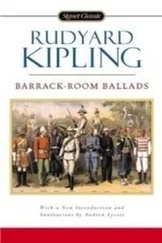Джозеф Киплинг - From Sea to Sea
Здесь есть возможность читать онлайн «Джозеф Киплинг - From Sea to Sea» весь текст электронной книги совершенно бесплатно (целиком полную версию без сокращений). В некоторых случаях можно слушать аудио, скачать через торрент в формате fb2 и присутствует краткое содержание. Год выпуска: 2014, Издательство: epubBooks Classics, Жанр: Биографии и Мемуары, Публицистика, на английском языке. Описание произведения, (предисловие) а так же отзывы посетителей доступны на портале библиотеки ЛибКат.
- Название:From Sea to Sea
- Автор:
- Издательство:epubBooks Classics
- Жанр:
- Год:2014
- ISBN:нет данных
- Рейтинг книги:3 / 5. Голосов: 1
-
Избранное:Добавить в избранное
- Отзывы:
-
Ваша оценка:
- 60
- 1
- 2
- 3
- 4
- 5
From Sea to Sea: краткое содержание, описание и аннотация
Предлагаем к чтению аннотацию, описание, краткое содержание или предисловие (зависит от того, что написал сам автор книги «From Sea to Sea»). Если вы не нашли необходимую информацию о книге — напишите в комментариях, мы постараемся отыскать её.
From Sea to Sea — читать онлайн бесплатно полную книгу (весь текст) целиком
Ниже представлен текст книги, разбитый по страницам. Система сохранения места последней прочитанной страницы, позволяет с удобством читать онлайн бесплатно книгу «From Sea to Sea», без необходимости каждый раз заново искать на чём Вы остановились. Поставьте закладку, и сможете в любой момент перейти на страницу, на которой закончили чтение.
Интервал:
Закладка:
A gang has been ordered to cut clay for the luting of the coke furnaces. The clay is piled in a huge bank in the open sunlight. A coolie hacks and hacks till he has hewn out a small cave with twenty foot of clay above him. Why should he trouble to climb up the bank and bring down the eave of the cave? It is easier to cut in. The Sirdar of the gang is watching round the shoulder of the bank. The coolie cuts lazily as he stands. Sunday is very near, and he will get gloriously drunk in Giridih Bazaar with his week's earnings. He digs his own grave stroke by stroke, for he has not sense enough to see that undercut clay is dangerous. He is a Sonthal from the hills. There is a smash and a dull thud, and his grave has shut down upon him in an avalanche of heavy–caked clay.
The Sirdar calls to the Babu of the Ovens, and with the promptitude of his race the Babu loses his head. He runs puffily, without giving orders, anywhere, everywhere. Finally he runs to the Sahib's house. The Sahib is at the other end of the collieries. He runs back. The Sahib has gone home to wash. Then his indiscretion strikes him. He should have sent runners—fleet–footed boys from the coal–screening gangs. He sends them and they fly. One catches the Sahib just changed after his bath. "There is a man dead at such a place"—he gasps, omitting to say whether it is a surface or a pit accident. On goes the grimy pit–kit, and in three minutes the Sahib's dogcart is flying to the place indicated.
They have dug out the Sonthal. His head is smashed in, spine and breastbone are broken, and the gang–Sirdar, bowing double, throws the blame of the accident on the poor, shapeless, battered dead. "I had warned him, but he would not listen! Twice I warned him! These men are witnesses."
The Babu is shaking like a jelly. "Oh, sar, I have never seen a man killed before! Look at that eye, sar! I should have sent runners. I ran everywhere! I ran to your house. You were not in. I was running for hours. It was not my fault! It was the fault of the gang–Sirdar." He wrings his hands and gurgles. The best of accountants, but the poorest of coroners is he. No need to ask how the accident happened. No need to listen to the Sirdar and his "witnesses." The Sonthal had been a fool, but it was the Sirdar's business to protect him against his own folly. "Has he any people here?"
"Yes, his rukni ,—his kept–woman,—and his sister's brother–in–law. His home is far–off."
The sister's brother–in–law breaks through the crowd howling for vengeance on the Sirdar. He will send for the police, he will have the price of his brother's blood full tale. The windmill arms and the angry eyes fall, for the Sahib is making the report of the death.
"Will the Government give me pensin ? I am his wife," a woman clamours, stamping her pewter–ankleted feet. "He was killed in your service. Where is his pensin ? I am his wife."
"You lie! You're his rukni . Keep quiet! Go! The pension comes to us ."
The sister's brother–in–law is not a refined man, but the rukni is his match. They are silenced. The Sahib takes the report, and the body is borne away. Before to–morrow's sun rises the gang–Sirdar may find himself a simple "surface–coolie," earning nine pice a day; and in a week some Sonthal woman behind the hills may discover that she is entitled to draw monthly great wealth from the coffers of the Sirkar. But this will not happen if the sister's brother–in–law can prevent it. He goes off swearing at the rukni .
In the meantime, what have the rest of the dead man's gang been doing? They have, if you please, abating not one stroke, dug out all the clay, and would have it verified. They have seen their comrade die. He is dead. Bus! [17] Enough.
Will the Sirdar take the tale of clay? And yet, were twenty men to be crushed by their own carelessness in the pit, these same impassive workers would scatter like panic–stricken horses.
Turning from this sketch, let us set in order a few stories of the pits. In some of the mines the coal is blasted out by the dynamite which is fired by electricity from a battery on the surface. Two men place the charges, and then signal to be drawn up in the cage which hangs in the pit–eye. Once two natives were intrusted with the job. They performed their parts beautifully till the end, when the vaster idiot of the two scrambled into the cage, gave signal, and was hauled up before his friend could follow.
Thirty or forty yards up the shaft all possible danger for those in the cage was over, and the charge was accordingly exploded. Then it occurred to the man in the cage that his friend stood a very good chance of being, by this time, riven to pieces and choked.
But the friend was wise in his generation. He had missed the cage, but found a coal–tub—one of the little iron trucks—and turning this upside down, crawled into it. When the charge went off, his shelter was battered in so much, that men had to hack him out, for the tub had made, as it were, a tinned, sardine of its occupant. He was absolutely unhurt, but for his feelings. On reaching the pit–bank his first words were, "I do not desire to go down to the pit with that man any more." His wish had been already gratified, for "that man" had fled. Later on, the story goes, when "that man" found that the guilt of murder was not at his door, he returned, and was made a mere surface–coolie, and his brothers jeered at him as they passed to their better–paid occupation.
Occasionally there are mild cyclones in the pits. An old working, perhaps a mile away, will collapse: a whole gallery sinking bodily. Then the displaced air rushes through the inhabited mine, and, to quote their own expression, blows the pitmen about "like dry leaves." Few things are more amusing than the spectacle of a burly Tyneside foreman who, failing to dodge round a corner in time, is "put down" by the wind, sitting–fashion, on a knobby lump of coal.
But most impressive of all is a tale they tell of a fire in a pit many years ago. The coal caught light. They had to send earth and bricks down the shaft and build great dams across the galleries to choke the fire. Imagine the scene, a few hundred feet underground, with the air growing hotter and hotter each moment, and the carbonic acid gas trickling through the dams. After a time the rough dams gaped, and the gas poured in afresh, and the Englishmen went down and leeped the cracks between roof and dam–sill with anything they could get. Coolies fainted, and had to be taken away, but no one died, and behind the first dams they built great masonry ones, and bested that fire; though for a long time afterwards, whenever they pumped water into it, the steam would puff out from crevices in the ground above.
It is a queer life that they lead, these men of the coal–fields, and a "big" life to boot. To describe one–half of their labours would need a week at the least, and would be incomplete then. "If you want to see anything," they say, "you should go over to the Baragunda copper–mines; you should look at the Barakar ironworks; you should see our boring operations five miles away; you should see how we sink pits; you should, above all, see Giridih Bazaar on a Sunday. Why, you haven't seen anything. There's no end of a Sonthal Mission hereabouts. All the little dev—dears have gone on a picnic. Wait till they come back, and see 'em learning to read."
Alas! one cannot wait. At the most one can but thrust an impertinent pen skin–deep into matters only properly understood by specialists.
Примечания
1
A seer is about two pounds.
2
Stud–bred, i.e. bred at the Indian Government studs.
Читать дальшеИнтервал:
Закладка:
Похожие книги на «From Sea to Sea»
Представляем Вашему вниманию похожие книги на «From Sea to Sea» списком для выбора. Мы отобрали схожую по названию и смыслу литературу в надежде предоставить читателям больше вариантов отыскать новые, интересные, ещё непрочитанные произведения.
Обсуждение, отзывы о книге «From Sea to Sea» и просто собственные мнения читателей. Оставьте ваши комментарии, напишите, что Вы думаете о произведении, его смысле или главных героях. Укажите что конкретно понравилось, а что нет, и почему Вы так считаете.












